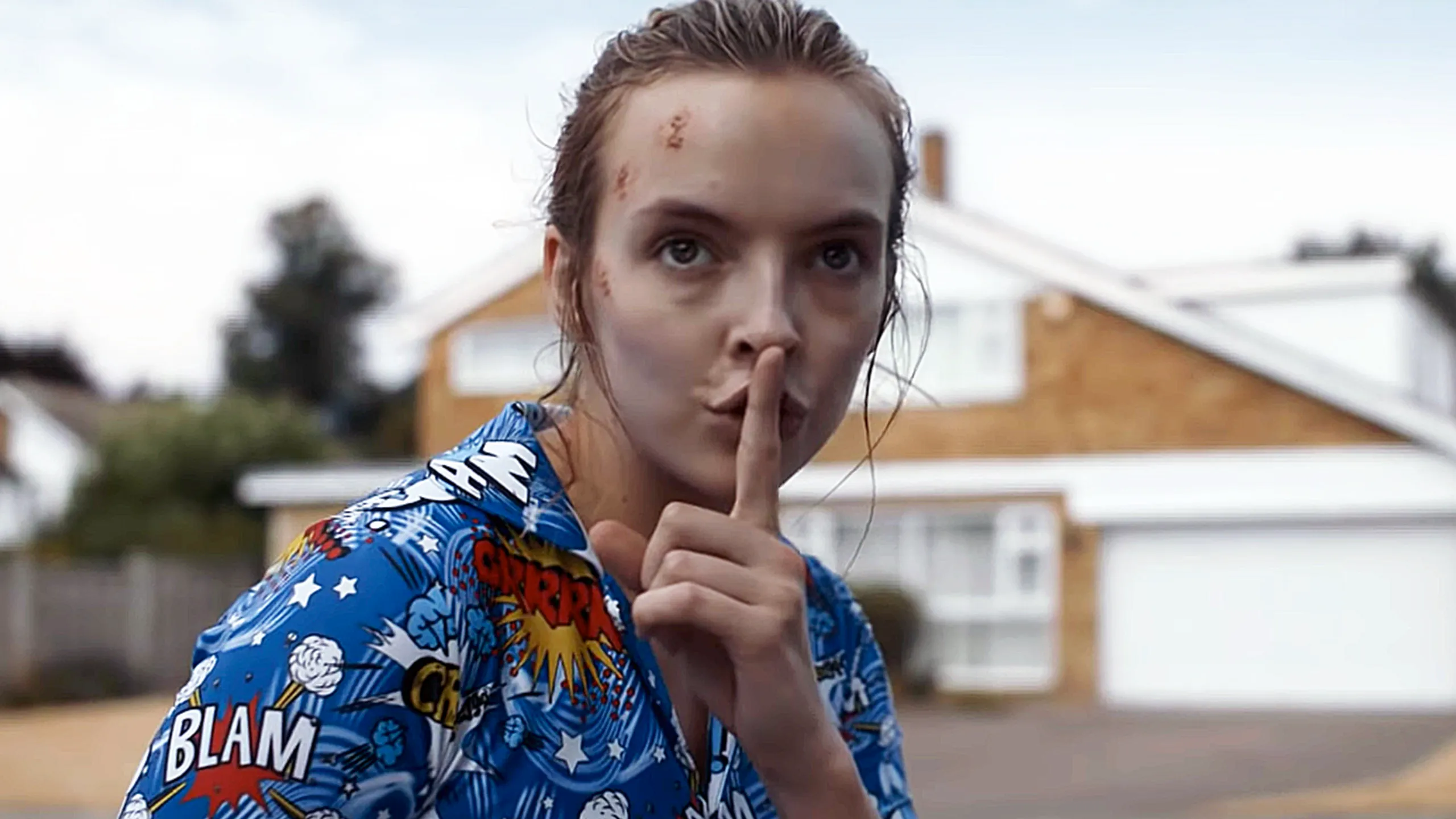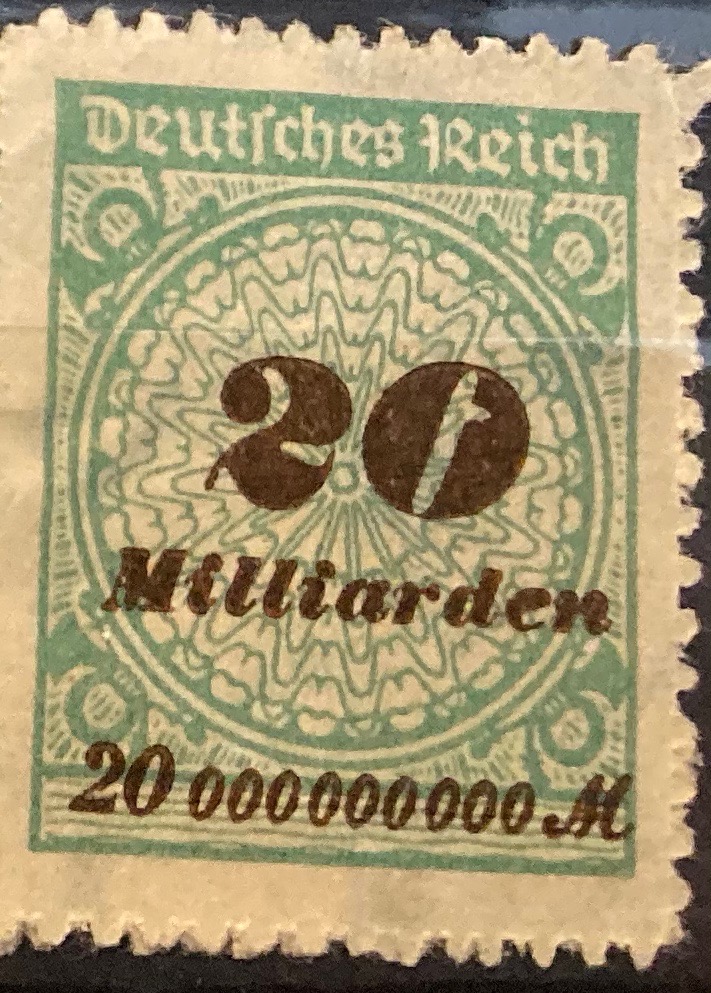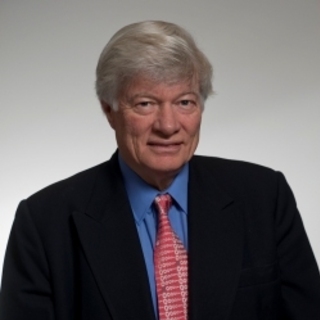The following article was written for The Article and published on 21st May 2020; it may be read here. What appears below is a pre-edited version.
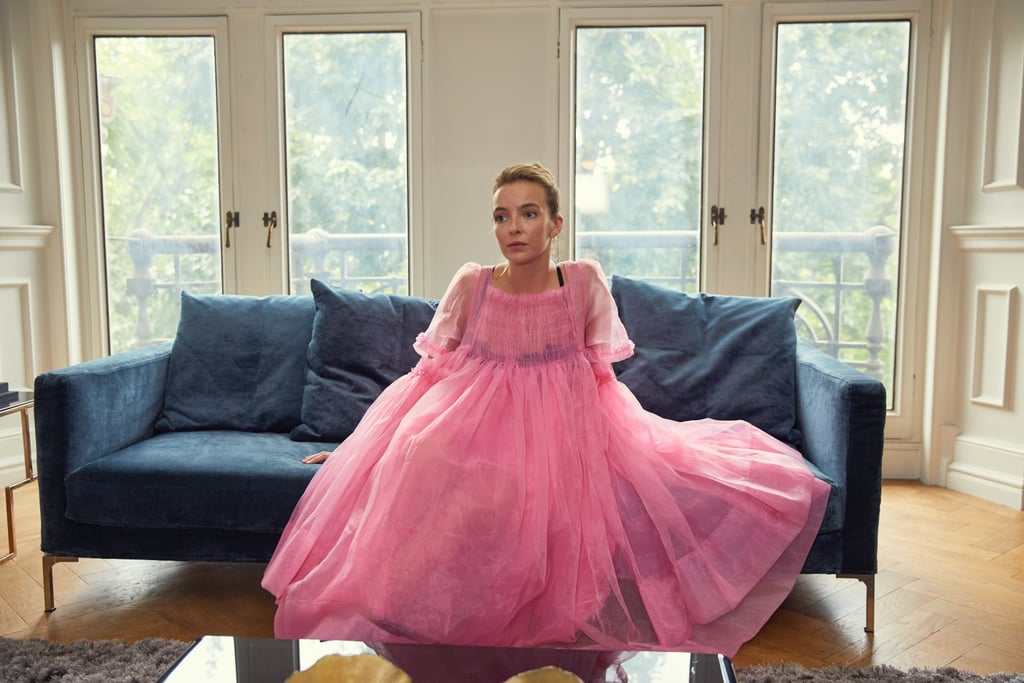
Jodie Comer as Villanelle in Season 1 of ‘Killing Eve’
Killing Eve, made for BBC America and iPlayer and released 2018-20, is a spy thriller of (so far) three seasons of eight 41-55 minute episodes
AMORALITY
One has to leave conventional morality at the door to like Killing Eve – even more so than for the thriller genre in general, where, so far from caring about any character’s death, we welcome the ‘thrill’ that it brings. Our obsession, here, is with a psychopathic assassin working for an international criminal organisation called the Twelve. Villanelle, played by Jodie Comer in the performance of a lifetime, is the series’ life and soul: witty, charismatic, sardonic, beautiful. The slow-burn romance between her and MI6 pursuer Eve Polastri (Sandra Oh) ends up casting Eve in the role of the everyperson viewer of this series – that is, falling by taking the proffered apple of her charisma. Seventy seconds into the series’ opening episode, after a small girl in a café has initially failed to reciprocate Villanelle’s smile, the latter knocks the kid’s ice-cream into her lap on her way out. Bam: here is Killing Eve’s gate-keeper moment. All who pass through it are on the side of the sardonic, amoral young woman, not that of the innocent if irritating little girl.
But – it’s my hope to demonstrate – the series not only possesses an amoral joie de vivre, but also its own morality – one a million miles from Hollywood pieties: twisted, ironic, deeply rooted in knowledge of the world’s evil, but with its own wisdom and compassion, and its own urgent relevance to a world in which straight-faced, simplistic, tongue-out-of-cheek pieties are so often inadvertently productive of conflicts, or advertently weaponised in their support. One thinks of the strife into which the feminist movement has been thrown by unsubtle, closed-minded positions in relation to transgenderism – or of the sincere horror at atrocities that was weaponised to support now widely-regretted invasions of Middle Eastern countries. If a morality that presents itself as innocent in our wicked world can so often be shown to be ill-advised, manipulable, or in bad faith, then perhaps a flamboyantly amoral television series can be turned to for a subtler, more modest and ultimately more serviceable morality.
FEMINISM
Paradoxically, this subtlety is sometimes disguised as overstatement. Take, for example, Killing Eve’s feminism. Superficially, this is exaggerated to the point of misandry. Not only are the two leads, but also most of the major characters, women. On balance these score decisively higher than the men on a tally achieved by multiplying each character’s interest, charisma, integrity, and success. Accordingly they are rewarded with greater longevity, often at Villanelle’s own discretion. She collects the penises of her male victims, claiming to pickle the ‘good’ ones, and do ‘you don’t want to know’ what with the rest. She has decidedly more sexual interest in women than men, and apparently ‘converts’ Eve, who starts out married to a man. The formation of all-female groupings (the third lead is thrice-divorced head of the MI6 Russia desk Carolyn Martens [Fiona Shaw]), and lesbian self-sufficiency, are tropes of second wave feminism. By contrast third wave feminism is more apparent in Villanelle’s confident promiscuity, weaponization of her attractiveness, and frank embrace of consumer luxuries (she spends much of her earnings on designer clothes, though the series shuns the relentless brand-naming of Luke Jennings’s originary novellas). In theory these modes clash, and both clash with the misogynist association of lesbianism and psychopathy (as in Basic Instinct) which Villanelle’s character apparently amply reinforces. At first glance, then, the feminism is both extreme and incoherent.
But a closer look finds justifications and resolutions. First, there are significant exceptions to the misandry. Villanelle’s handler Konstantin (memorably played by Kim Bodnia) is a man who not only survives but becomes progressively more likeable over the three seasons. He, not Eve, is Villanelle’s true double: murderous, manipulative, disloyal, impossible to fully know or remotely trust, but always a delight to have on screen, and charismatic to the point of loveability. Given their similarities it is no surprise that both arc simultaneously towards disillusionment with their work for the Twelve, and a desire to escape into Cuban beachside retirement, or durable marriage, respectively. It is in the moments when Villanelle actively tries to kill him, or does nothing to save him, that sympathy for her character is most strained. By contrast Carolyn, who executes her MI6 boss Paul for being a double-agent for the Twelve, spares her former lover Konstantin at the last second, leaving him to walk away from the third season’s last episode with all that he needs to escape to safety. The dominance of women could have been asserted absolutely in this finale, but it isn’t, and it is instead acknowledged that women can love men. The series’ moral centre – kind, loyal, normal Niko Polastri – is indeed battered about considerably by the plot, but survives an assassination attempt so that he can tell Eve to ‘PISS OFF FOREVER’, and may yet have something up his sleeve for Season 4.
More importantly, the position of women in society is presented as being in such a mess that it needs a bomb to be placed under it, and the jagged edges of second and third wave feminism in this series are the exploding particles. Admittedly, the series depicts a world in which women can hold senior positions within organisations, but it is also one in which many men continue to assume a right to dominate and patronise. Between the commissioning of Season 1 in 2016, and its US airing in April 2018, the #MeToo movement was kick-started in October 2017 by allegations made against the Hollywood producer Harvey Weinstein. The fact that attention is paid to this series having almost entirely female producers and showrunners, as it would not be were they all men, emphasises the point. Above all, Killing Eve stresses that women should not be underestimated, by making it dangerous for people who do so. A major plot in Season 2 concerns ‘the Ghost’ – a different female assassin, whose success is partly attributable to her being a middle-aged Asian woman adopting low-paid service roles; as such she is overlooked by her victims entirely. When jejune Cambridge graduate Hugo asks Eve why this is her theory as to the identity of the killer, her tart reply is: ‘because you just interrupted me to ask me that question’.
Villanelle, by contrast, is underestimated precisely because of her youth and beauty, to various men’s costs: the Italian mafioso she is sent to assassinate thinks she has been sent to him as a present; Julian, the hapless but creepy bachelor who mistakes Villanelle for an abused and abusable child, is murdered still more grotesquely; a chauvinist American golfer hilariously falls for Villanelle’s assertion that she needs help finding a golf ball because she was ‘brought up in a family where men were men and women were women, and women liked their men to be men’. The elderly lady who serves microwaved fruitcake and presents herself as the mother of MI6 boss Frank is in fact a Russian sleeper agent. The inevitable comparison with Bond, emphasised now that Waller-Bridge is a script consultant for the next Bond film No Time to Die, is to reveal that franchise’s gender and sex politics as strikingly out of date.
But all of this is achieved with, and through, mordant wit, brio, dark comedy, élan, impatience and mischievousness, and therefore in striking contrast to the seriousness and outrage that has characterised much of the #MeToo movement. Rage saturates Lisa Hilton’s 2016-18 Maestra trilogy, which also concerns a beautiful, psychopathic, working-class daughter of a neglectful mother made good who lays all around her to waste (the near-coincidence of these with Luke Jennings’s 2014-16 novellas Codename Villanelle is embellished by the fact that Comer, like Hilton and her heroine Judith Rashleigh, is from Liverpool). But where Rashleigh is filled with what Nietzsche would call ressentiment, Villanelle’s dominant affect is jouissance.
Another other obvious contrast is to Waller-Bridge’s Fleabag, which started as a one-woman show at the Edinburgh fringe in 2013 – she gained the commission for Killing Eve on the strength of it – and was translated to television at the same time as Killing Eve. Fleabag is a middle-class everywoman who comforts other middle-class women that their travails and embarrassments are not unique – and could indeed be considerably worse – but she is not inspirational, as Eve, despite also having an air of disorganisation, haplessness and self-destructiveness, in many ways is.
The range of Killing Eve’s feminisms suggest that all are needed to address the current situation; all have their own validity, and must somehow be made to live together. This is paralleled by the differences between the women, as emphasised by their dress. There is dowdy, disorganised, intuitive Eve; glamorous, effortless, psychopathic Villanelle; sophisticated, efficient, eccentric Carolyn; normcore, kind, sane Anna. Some feminisms would celebrate one of these women over the other; Killing Eve celebrates them all.
Carolyn is presented in constant conflict with her needy daughter Geraldine, who believes in self-help, self-expression and vegetarianism (a notable point in a strikingly carnist series). After the latter has read out her lovingly handwritten list of everything she had ever wished she had said to her, and asks her mother to reciprocate, Carolyn opens a book at a blank page and announces simply: ‘Dear Geraldine, I think it’s time you left’. Yet the opposed attitudes and feelings of both women are permitted weight, even if the humour of their scenes skews in Carolyn’s favour. No need – watching this series as a woman – to feel either compelled to, or guilty that one does, pay considerable attention to one’s clothing or appearance. The range of physical types and ages of the characters is similarly equable; Carolyn and Dasha (Villanelle’s handler in Season 3) are both excellent parts for late-middle-aged women – a rarity in the world of acting – but there is no envy on either’s part for Villanelle in the flush of her young beauty; both are too busy living their own lives and building on the success of their long careers.
This amicable diversity amongst female strengths is reflected at the level of the creative team; each season has a different woman as its showrunner. Phoebe Waller-Bridge’s first season is shocking and exuberant; Emerald Fennell’s second season is both more lurid and more sombre; Suzanne Heathcote’s third season is the most affecting and thoughtful; overall the producers wanted to permit such diversity, not enforce uniformity. One can prefer one to another, but they all work together, and each is given its own moment to shine.
One unifying feature, however, applies to the series as a whole – a rejection of sentimentality. For this reason the exception to the feminist generosity described above is a female character associated with this limitation – Niko’s friend and primary-school teacher colleague Gemma, who has a musical jewellery box with a rotating ballerina, unrequitedly loves Niko, and tries to manipulate him into loving her. Villanelle kills her. Indeed, the series consistently cuts through sentimentality like detergent through grease. Children are valued for their knowingness (Konstantin’s fourteen-year-old daughter Irina inflicts this on him with a vengeance), but not for their innocence. The opening scene with the girl and the ice-cream illustrates this, as does the scene in which a baby flicks a piece of food at Dasha, and is promptly placed in a public rubbish bin for her pains. Only once is any desire to have children evinced, in Villanelle’s moment of stunned jealousy at discovering that Dasha has a son.
The rejection of sentimentality even correlates to a quiet sternness of morality which undercuts the surface amorality. In Season 3, like Bond in Skyfall, Villanelle journeys back to her unhappy childhood home. There she and her mother acrimoniously engage in the ancient dispute about the relative influence of nurture versus nature on character. Villanelle explains her conduct by the fact of her mother having abandoned her to an orphanage; her mother presents this action as a response to something that was always evil about her. Though the mother is unsympathetic, her words are allowed some weight; the series is not going to let anyone off the hook on grounds of childhood trauma. By contrast in the novellas the child Oksana’s first killings are given considerable justification: she kills the gangsters who killed her father, on whom the police could pin nothing, and the man who sexually assaults her beloved teacher (in the series she simply murders the teacher’s husband out of jealousy). Although Villanelle promptly blows up her mother and assorted step-relatives, she is arguably shaken by the conversation as well as by the murder that is her response to it, and she thereafter starts to turn from the Twelve. All the killing may have served a feminist turn of kinds, but so does the self-responsibility manifested by an eventual revulsion from it.
POLITICS
That said, there is a cynicism to the series’s morality that constitutes its own, more heterodox and astringent wisdom, and which is particularly apparent in its treatment of institutions. In Bond films, one may observe by way of comparison, MI6 is always, ultimately, on the side of both victory and right. Bond’s methods may strain the patience of his bosses; he is frequently if unsuccessfully put under restraint by them; but by the end of each film they are reconciled. Occasionally a former agent goes rogue (such as Raoul Silva in Skyfall); occasionally the institution is itself misguided (in Quantum of Solace it spends far too long collaborating with a CIA that is itself collaborating with the film’s villain for its own imperialist purposes). But on such occasions Bond invariably jerks MI6 back to the side of right. Our point of entry and allegiance to this organisation is a spy with a license to kill; his victims are invariably either evil or collateral damage; killing in the name of the British state is therefore part of the unquestioned premise of the entire franchise.
In Killing Eve, however, this is not so. Our entry point is a desk-based agent charged with tracing an assassin. This makes it the more shocking when it is frankly acknowledged – if not demonstrated – that MI6 itself carries out murders (just as it is queasily known, and not generally faced up to, that UK state bodies do so in reality). In Season 3’s last episode Carolyn meets with Villanelle in the Royal Albert Hall – symbolic of the British establishment – whilst listening to Mahler’s tenth symphony – symbolic of the high culture that it consumes. Villanelle says she wants to accept the job offer Carolyn had made to her in Season 1. ‘You want to kill for us now?’ ‘No’ ‘I’m confused. What would you do for us?’ A killing-averse Villanelle accordingly fails her MI6 job interview.
In Season 2 MI6 is shown to engage in torture. The captured ‘Ghost’ is put in a hanger in the middle of an English forest and interrogated in ways we assume to be sufficiently ‘enhanced’ as to justify this removal. Eve invites the temporarily-conscripted Villanelle to interrogate her. The latter asks: ‘Are you sure this is even legal?’ Eve responds: ‘What do you care?’ ‘I’m just looking out for you … Would you like to watch?’ On refusing, and shortly afterwards being given by Villanelle the information that she was looking for, she asks: ‘What did you do?’ ‘Nothing you didn’t ask me to’ is the answer. The successful torture of a prisoner, and the employment of a criminal to do so, are presented as being inextricably linked.
The scene is exemplary not just of MI6’s illegal methods but of the fluidity of allegiance of its personnel. In Bond’s MI6 employees are either firmly honourable or firmly traitorous; in Killing Eve they shift about. Carolyn’s son Kenny, who ‘lives in the internet. He can find anything, track anything, trace anything, monitor anything or anyone’ first engages in this surveillance for MI6, and later for a private research agency, Bitter Pill. This characterisation, if true, means that he has as much power as internet guru Aaron Peel of Season 2, a villain who closely resembles the panoptical Blofeld of 2015’s SPECTRE who himself, as it happens, has successfully infiltrated MI6’s intelligence system. Carolyn has a budget to fund spying on MI6 in case of suspicions about it; she herself recruits Villanelle and Konstantin to work for it. Eve’s boss in Season 1, Frank, and Carolyn’s boss in Season 3, Paul, are both in the pay of the Twelve. Meanwhile Eve veers in and out of MI6 employment whilst gradually becoming a killer herself, killing the Twelve’s handler Raymond in order to save Villanelle, and Dasha just for the hell of it.
The fluidity of the distinction between state and criminal organisations is still more clearly illustrated by Jennings’s Codename Villanelle novellas. Teen killer Oksana Astankova, having been recruited from a Russian prison to work for Konstantin on behalf of it is not quite clear whom, is sent on a training programme that starts with a boot camp in Essex with ‘a former Special Boat Service instructor’. She is then ‘attached to a NATO Special Forces cadre’ in Germany, tortured during a ‘Resistance to Interrogation programme’ at a ‘US Army facility in Fort Bragg, North Carolina’, and finally trained in a variety of further state and private outfits in Germany, Ukraine, Russia, France and the UK. The source of Villanelle’s powers, then, rest at least as much in state as criminal organisations, and their deployment is equally mixed.
Irina is mordant about Konstantin’s pretence to be straightforwardly a state employee. ‘Working for the Russian state security service, Irina – that’s a big deal.’ ‘Do you think I’m a moron?’, she responds. ‘You might pretend to be working for the FSB, you might pretend to be helping MI6, but we both know who you’re really working for – yourself’. She does not allege that he works for a criminal organisation, but the sense of her accusation is that it would be unaltered if he did.
This begs the question of what the Twelve is, and how far it is distinct from state bodies. Codename Villanelle opens with an account of their meeting by an Italian lake. From the discussion of problems they are having with a Sicilian mafia boss it becomes apparent that they are an international crime syndicat whose end is simply making money. This puts them in the same category as those more humdrum Bond villains such as Auric Goldfinger, Kananga in Live and Let Die, or the Man with the Golden Gun, who simply want to be rich – and in a different category to the madder ones of higher motives such as Orlov in Octopussy, who wants the Soviet Union to invade Western Europe, Stromberg in The Spy Who Loved Me, who wants humanity to live under the sea, and Drax in Moonraker, who wants it to live on the moon.
As translated to television, the Twelve is more like SPECTRE, the Special Executive for Counter-Intelligence, Terrorism, Revenge and Extortion, which is shadowy, has shape-shifting Blofelds and subgroups, and, as its name suggests, has an interest in violence for its own sake. In its survival between Fleming’s various novels and the various films, it likewise has an aura of being beyond control. The Twelve also have a whiff of Murder Inc., the New York assassination consortium set up by cooperative Italian- and Jewish-American mafias in the 1930s and 40s. But, like the Assassination Bureau of the 1969 film of that name, they also have the aura of being indiscriminately for hire. This would account for the apparent randomness of Villanelle’s assignations: a sex-trafficking Russian politician, an Italian mafia boss, a French businesswoman, a Chinese diplomat who had apparently uncovered a Chinese mole, a Catalan political agitator, and a Roumanian politician. As Carolyn says, there is ‘No trace. No pattern. But most importantly no one owning up to it and somebody usually does’ – before swiftly contradicting herself: ‘She’s on a payroll, there’s a pattern, we just haven’t worked it out yet’. By the end of the third season we still haven’t worked it out.
The more ethereal organisation of the series compared to the novellas is accordingly not only more powerful-seeming, but more ethically-subversive, as it is uncertain who they are and what their limits are. Its employees Frank and Hélène (Villanelle’s ultimate boss in Season 3) both characterise it by the abstraction ‘chaos’. Frank says: ‘There is a sequence, a pattern to these kills, they’re destabilising from the ground up’ ‘To what end?’, asks Eve. ‘Chaos’. Similarly, Hélène hugs Villanelle during an interview and tells her: ‘Do you know why I love you, Villanelle? Because you’re an agent of chaos, and I love chaos. Chaos disrupts, it rips apart and starts again, it’s like a forest fire, it burns, it kills, it’s monstrous but it’s beautiful’.
Certainly, the institution of the Twelve is an agent of moral chaos in the series, since it throws everything into question. One of the most cynical exchanges in the series is between Eve and Villanelle in Season 1: ‘Who do you work for? Why are you killing these people? Do you not know?’ Villanelle counters: ‘Do you know who you work for?’ ‘Yes’ ‘Really?’ ‘Yes’ ‘Really? I think if you went high enough you would probably find we work for the same people’. Eve has no answer.
The idea of a numbered, shadowy super-oligarchy recalls the 1966-68 television series The Prisoner. Here the kidnapped protagonist is repeatedly interrogated by an ever-changing ‘Number 2’, rather as Villanelle’s handlers rotate without warning. Moreover, our hero finds that he himself now has a number – 6. He cannot establish which side of the Iron Curtain the Village where he is being held is, Cold War distinctions being now apparently redundant. Finally, the subject of his interrogations is his reasons for leaving the British secret service. Killing Eve correspondingly interrogates why one would want to enter MI6, or any other intelligence service, in the first place.
This being Killing Eve, there is also about the Twelve the faintest whiff of the absurd. Their name is portentously Biblical in a series of irreverent and deflationary wit. One is reminded of the awesome ‘Colonel Psev’ in the December 1965 episode of The Avengers ‘Two’s a Crowd’, who turns out to be a fiction invented by his four supposed underlings to assist their end of infiltrating a meeting about Polaris missiles. The moment of revelation has something of the bathos of the equivalent moment in The Wizard of Oz. Killing Eve even contains a moment of laughter at absurd conspiracy theories concerning all-powerful bodies: Villanelle’s mother’s stepson Fedya earnestly tells Villanelle that Neil Armstrong’s ‘giant leap for mankind’ was filmed ‘in Nevada’. They ‘never went to space’ because ‘they don’t want us to know that earth is flat’ [sic]. Moreover ‘There is secret organisation that make influence on every government in world.’ His girlfriend Yulia adds ‘And they will call downfall of planet and you won’t laugh.’ Fedya asserts that all intelligence agencies ‘have people working for this organisation’, before Yulia concludes: ‘And you know what they are? Lizards’.
The bathos of ‘lizards’, and Villanelle’s convulsedly amused response, does not mask the overlap between the idea that ‘There is a secret organisation that make influence on every government in the world’ and Villanelle’s own assertion to Eve that ‘if you went high enough you would probably find we work for the same people’ – but the vector is suggested as being less top-downwards than carried by the intermingling of good and bad, legality and illegality, horizontally.
Hence the stunning note of passivity on which Season 3 ends. When Carolyn has killed Paul Eve demands ‘Why kill him? He had everything we wanted to know about the Twelve … Kenny was killed trying to expose the Twelve. Isn’t that what we’re all trying to do?’ Carolyn – a woman whom her admiring subordinate Elena once claimed to have ‘exposed an ex-KGB officer planning to sell weapons-grade plutonium on the international black market … Apparently she’s saved the world like eight more times since then’, responds: ‘What I’ve come to realise is that one cannot destroy the Twelve.’ Villanelle, who should know, concurs: ‘You should listen to her, Eve.’
The upshot, for political attitudes, is bracing: be cynical, be aware that states only in theory have a monopoly on the use of violence and that this very supposed monopoly renders them non-innocent, that there is a limited amount we can do to oppose the evil in the world, and that chaos is in all of us.
RUSSOPHOBIA
Yet it belongs to the wisdom of this cynicism that it is conducive to peace between countries, between which there are no meaningful distinctions. This might seem a counter-intuitive argument to make about a story which seems to fall so squarely into contemporary anti-Russian sentiment. Certainly, just as James Bond was created by Fleming against the backdrop of the old Cold War, so Luke Jennings created Villanelle against the backdrop of the new one, which had been escalating throughout Putin’s presidency and the Western response thereto. In 2002 the United States withdrew from the Anti-Ballistic Missile Treaty, in 2004 NATO expanded into the Baltic states, in 2008 Russia and Georgia went to war, from 2010 NATO missile bases were planted in Eastern Europe, in 2014 Crimea was joined with Russia, from 2015 Russia and the United States supported opposing sides in Syria, in 2016 US intelligence services asserted that Russia was interfering in the American election – and in 2014-16 Codename Villanelle was published. When Killing Eve was first screened in 2018 the ‘Russiagate’ narrative concerning the American election was at its height.
According with the dominant Western discourse on these matters, the Twelve is largely Russian and most of the Russian characters are killers (even, by the end of Season 3, the fourteen-year-old). As in the Bond films, Russians are played by non-Russians, despite Russian actors now being far more accessible (partial exceptions are Kim Bodnia as Konstantin, who is Polish-Russian-Jewish-Danish, and Yuli Lagodinsky as Irina, who is Russian-speaking British-Israeli; full credit is hereby given to Comer for a realistic Russian accent).
Most of the series settings, from Aberdeen to Andalucia, are beautiful and their affect is positive, no matter how horrific the events Villanelle performs in them. Russia is the exception. The Moscow of Season 1 is represented on the one hand by a brutal grey prison under a grey sky guarded by warders in camouflage uniforms, and on the other by a city centre that seems to have been filmed with a brownish, grainy filter and that feels oddly dated; the hotel in which Eve and Carolyn stay was last decorated in the 1970s; two Russian flags slump grubbily over its entrance and seem implicated in its gloom. The Moscow of Season 3, by contrast, has a hard, glamourous modernity – but it is also somewhat nightmarish, and the music (by series composers David Holmes and Keefus Ciancia) invariably shifts accordingly once the scene moves there.
On the other hand, the first time Carolyn arrives in Moscow she announces to Eve: ‘God, my bones come alive in this country’, and proceeds to spend the rest of the taxi-ride from the airport preparing her makeup for an encounter with two ex-KGB lovers from the nineteen-eighties. She and they proceed to discuss the possibility of ‘tit-for-tat’ access to prisoners and exchange of information, just as they did during the heights of Cold War amiability (and just as we see in the collaboration between M and General Gogol in the Bond films, which are notably less hostile to Russia than are Fleming’s novels).
Beyond this, there is a strong sense that the negative representation of Russia is overdone, and that the series is in fact subtly parodying Russophobic excess. For example, the utopian Polish and dystopian Russian villages look remarkably similar and were in fact filmed in two Roumanian villages; in the Polish one geese walk happily across the road and children wave cheerily at Niko; in the Russian one an alsation barks at the end of his rope and a lorryload of logs nearly runs Villanelle over. The Russian village houses Lumpenproletariat such as Fedya and Yulia, whereas the Polish village consists exclusively of joyous kids, matey blokes and nice old women; the substitution of Dasha for one of them is the entry of a Russian snake into paradise.
The series seems to be similarly aware of the other ironies of its filming locations: Bucharest doubles for Sofia, Berlin, Paris and Barcelona; one of its train stations is Irina’s swanky Moscow school, whilst the Roumanian city of Timisoara was, surreally, filmed in Kensington. The Moscow ice rink where Villanelle cheers on Irina’s hockey match is in London, whilst the air field on which Irina takes Villanelle for a ride is RAF Upper Heyford, Bicester. Irina’s Moscow detention centre is filmed in the same London tower block as the Bitter Pill offices, with the addition of a false frieze of windows – a metaphor for distanced understandings of a foreign country if ever there was one. Yet the child psychiatrist who expresses his concerns about Irina in this place is the single most responsible and least corruptible official in any part of the series; no country has a monopoly on virtue or vice.
Nor are they even fully distinct. In Grizmet, Villanelle’s village, a likeable young relative is obsessed by Elton John, and the whole family break into a rendition of one of his songs. The scene of Villanelle and her mother’s first embrace is surreally scored by an English brass band. Any English sense of superiority to bizarre Russian conspiracy theories is undercut when Fedya concludes his harangue about lizards with: ‘This man in England, David Icke, very smart, knows many things.’ There is more than a hint of Borat in the dung-throwing competition at the village’s harvest festival, and in Villanelle’s award of an electric rotary fan as the festival’s first prize, but she concludes the day by saying ‘Pyotr was right. This is fun’. She has no such innocent fun anywhere else. Villanelle learns from her visit how Russia has changed, and is thus able to challenge Dasha, who relishes her impending return there: ‘Do you think anyone in Russia cares about a bendy KGB crone? Russia has vegans now. Did you know that? You go into a restaurant and ask for a stroganoff and they’re going to laugh in your face.’
Even the incident in Season 1 episode 2 when Villanelle assassinates French businesswoman Carla de Mann with a poisoned perfume has an equivocal relationship to the new Cold War. It first aired in America on the 15th April 2018; on 30th June Dawn Sturgess and her partner Charlie Rowley were admitted to hospital suffering from what was on 4th July affirmed by Porton Down to be Novichok poisoning; on 8th July Sturgess died. On 24th July Rowley told ITV that he had found the responsible perfume bottle in a cellophane-sealed box in a charity dump; on 5th September police said they had ‘no doubt’ that the perfume was connected to the incident of the poisoning of Sergei and Yulia Skripal on 4th March (the investigation is ongoing); on 15th September the episode was aired in the UK, now resonant with, and perhaps subliminally reinforcing-of, the now widely-held belief that Russian assassins had caused the death of a West European woman with a poisoned perfume. Meanwhile, a perfume called Villanelle that had coincidentally been launched in March 2018 by Belgian parfumier Kamila Aubre found orders for that scent mysteriously going through the roof. This very month the BBC is dramatizing The Salisbury Poisonings as a three-part series. The intertwining of art with life is one of the many confusions – and refusals of clean distinctions – that Killing Eve creates.
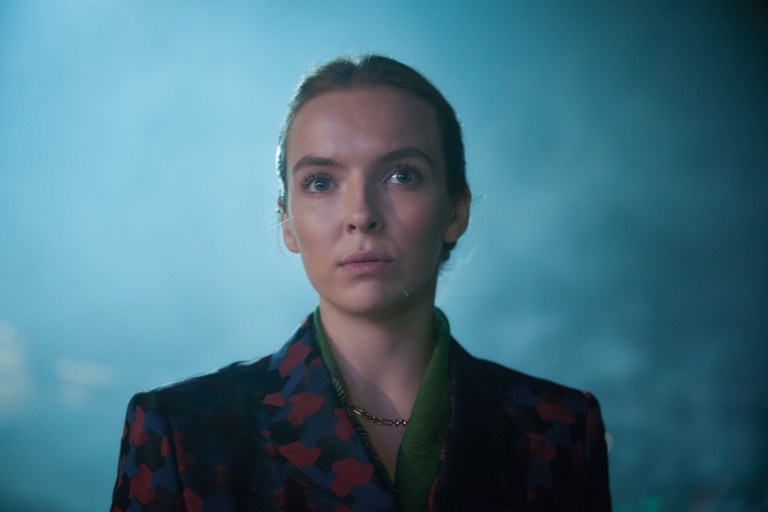
Jodie Comer as Villanelle in Season 1 of ‘Killing Eve’
CONCLUSION
This apparently flamboyantly-amoral series, then, issues its own quiet discouragement against assuming virtue in oneself and sin in others at the level of the individual, the institution or the nation. It asserts a plurality of admirable ways of being a woman and of defending women. And it does these things with an amused enjoyment of life in an inevitably-corrupt world, in which we can be cannily above manipulative conspiracy theories whilst accepting that real conspiracies exist and are endemic. Long may it hold out its warming, if flickering, light in these dark times.
